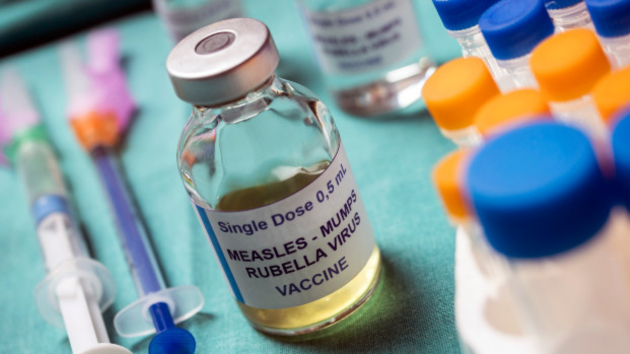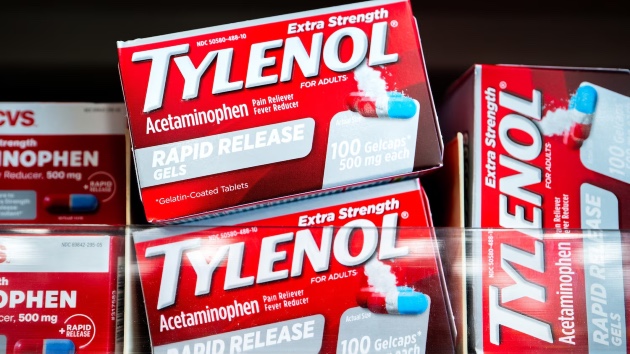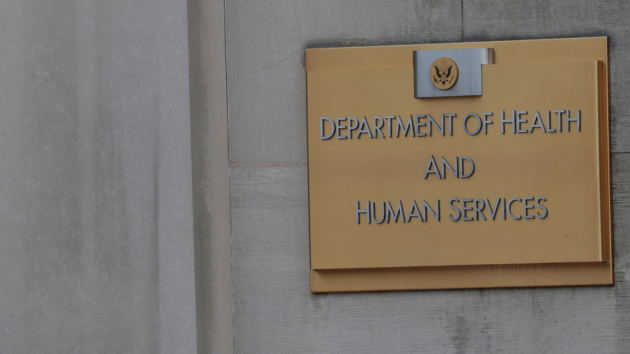University warns of ‘borg’ drinking trend after 28 ambulances called over the weekend
Written by ABC Audio ALL RIGHTS RESERVED on March 6, 2023

(AMHERST, Mass.) — The University of Massachusetts Amherst announced Saturday that the town’s local fire department dispatched 28 ambulances in response to calls involving a “significant number of alcohol intoxication cases” linked to “borgs” or “blackout rage gallons” after weekend parties in the area.
“[The Amherst Fire Department] and UMass officials said many students were observed carrying plastic gallon containers, believed to be ‘borgs’ (blackout rage gallons, a mix of alcohol, electrolytes and water),” the university said in part in a media update. The school highlighted it was the first time it had “observed notable use of borgs” during the weekend’s “Blarney Blowout” bash and that “in recent weeks, this binge drinking trend has been increasingly depicted on TikTok and seen on college campuses across the country.”
The #borg hashtag has garnered over 81 million views on TikTok so far and in general, the recipe for a borg consists of pouring out half the water in a gallon jug and then mixing in a third of vodka, liquid water enhancer or a flavored drink mix powder, caffeine and/or electrolyte powder.
George F. Koob, the director of the National Institute on Alcohol Abuse and Alcoholism at the National Institutes of Health, told “Good Morning America” the growing trend is raising concerns about the increase of binge drinking since students have returned to college campuses following the pandemic.
According to the 2021 National Survey on Drug Use and Health by the Substance Abuse and Mental Health Services Administration (SAMHSA), about 9.8 million young adults between the ages of 18 and 25 said they engaged in binge drinking in the last 30 days since participating in the survey and among those, 2.7 million identified as full-time college students.
“Unless you’re the one that mixed the borg and you know exactly how much alcohol you’re dispensing, it’s probably easy to overdo it,” Koob said. “The flavorant can mask some of the effects of alcohol and caffeine itself can mask some of the effects of alcohol so sometimes then you don’t even know or realize how much you’ve been drinking.”
Although the borg is touted as a healthier way for students to make their own alcoholic beverages and pace their drinking, Koob said diluting the alcohol doesn’t change how students would be affected by the alcohol they consumed.
“Ultimately, no matter how you take it, you’re going to get intoxicated and the alcohol is going to have its effects,” Koob said.
“The borgs, it sounds like some well-intentioned efforts to regulate how much people are drinking, but I think you have to be really careful when someone else, they may not be mixing drinks at a bar for you or in the kitchen, but if they’re mixing up in effect, a vodka punch, I personally am not sure that there’s a whole lot of difference.”
With spring break on the horizon for students across the country, Koob also urged “extra caution” among college administrators, parents and students alike.
“I think extra caution is needed this year because I think there is going to be a tendency to let it all hang out, so to speak,” Koob said. “Alcohol is very dangerous past a certain point and so binge drinking is not good for your health. High intensity drinking is not good for your health.”
Koob added that parents in particular should pay close attention to any noticeable changes to their kids’ behavior.
“For parents … if they start seeing changes in behavior of their students that they’ve sent on to college, university, find out how much they’ve been partying because there’s often a deterioration with excessive drinking … in scholarship, performance and even social interaction.”
“GMA” has reached out to TikTok for comment but has not yet heard back.
If you or someone you know is struggling with substance abuse, call SAMHSA’s National Helpline at 1-800-662-HELP (4357). SAMHSA’s National Helpline is a free, confidential, 24/7, 365-day-a-year treatment referral and information service.
Copyright © 2023, ABC Audio. All rights reserved.

 KVSP
KVSP 




